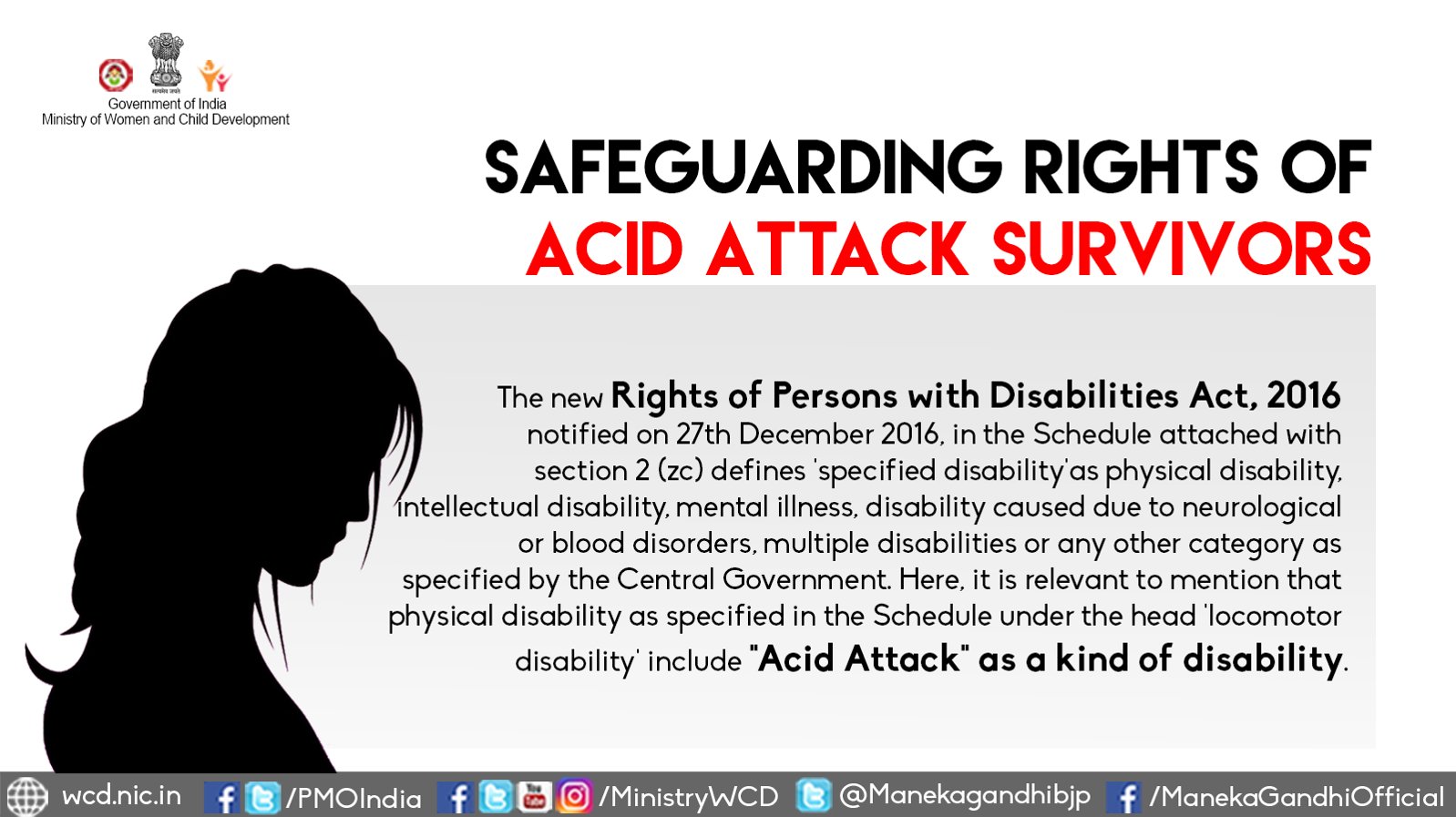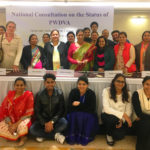On February 4th, Minister for Women and Child Development Mrs Maneka Gandhi took to Twitter to highlight how the new Rights of Persons with Disabilities Act (2016) will help the cause of acid attack survivors. Notified on 27th December 2016, in the Schedule attached with section 2 (zc) defines ‘specified disability as physical disability, intellectual disability, mental illness, disability caused due to neurological or blood disorders, multiple disabilities or any other category as specified by the Central Government. Here it is relevant to mention that physical disability as specified in the Schedule under the head ‘locomotor disability’ include ‘Acid Attack’ as a kind of disability. The ministry of social justice and empowerment plans to notify the rules to implement the Act by mid-April. The acid attack survivors will be eligible for government jobs under the one per cent quota for people with physical disabilities.


Acid throwing, also called an acid attack, is a form of violent assault defined as the act of throwing acid or a similarly corrosive substance onto the body of another “with the intention to disfigure, maim, torture, or kill.” Perpetrators of these attacks throw acid at their victims, usually at their faces, burning them, and damaging skin tissue, often exposing and sometimes dissolving the bones. The long term consequences of these attacks may include blindness, as well as permanent scarring of the face and body, along with far-reaching social, psychological, and economic difficulties. The reasons for this kind of attack are many- conflicts in intimate relationships, sexual rejection, gang wars, property wars and may have political and religious motives. Since the 1990s, Bangladesh has been reporting the highest number of attacks and highest incidence rates for women, with 3,512 Bangladeshi people acid attacked between 1999 and 2013. According to National Crime Records Bureau (NCRB) data from 2014, Delhi, with 20 incidences of acid attacks figures as the third state with highest cases after West Bengal and Uttar Pradesh.
There are several laws around the issue, and several compensation schemes available for acid attack victims. While many organizations like Acid Survivors Foundation India (AFSI) and Stop Acid Attacks work for the prevention of this heinous crime, and focus on rehabilitation of survivors, stringent laws revolving around sale and purchase of acid must be reinforced, and heavy penalties must be imposed for any deviation from these. Similarly, a stronger system of counselling and rehabilitating survivors and their families must be put into place, so as to enable better quality of living.


In this regard this new law comes as a welcome relief, and we hope that this enables victims to re-integrate into society in a healthy way. Simultaneously, we hope that the government also works in the area of prevention of this heinous crime, by enacting more stringent punishments and penalties for perpetrators. After all, prevention is better than cure!
Discuss this article on Facebook




